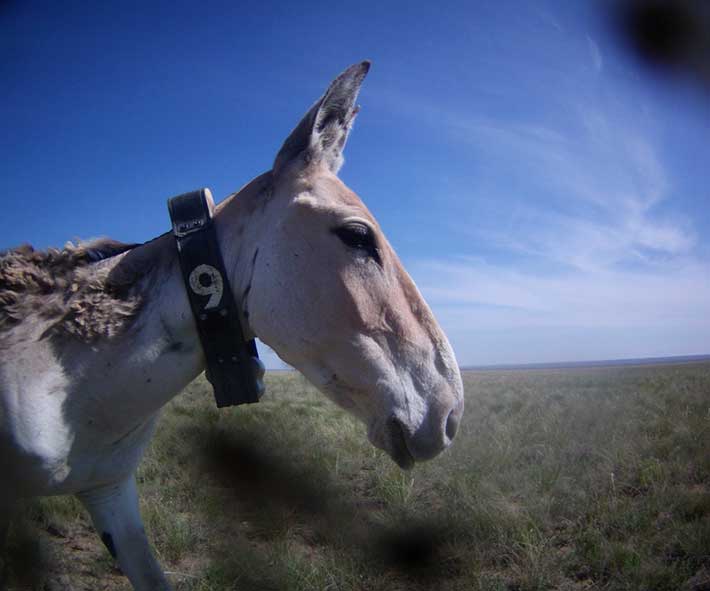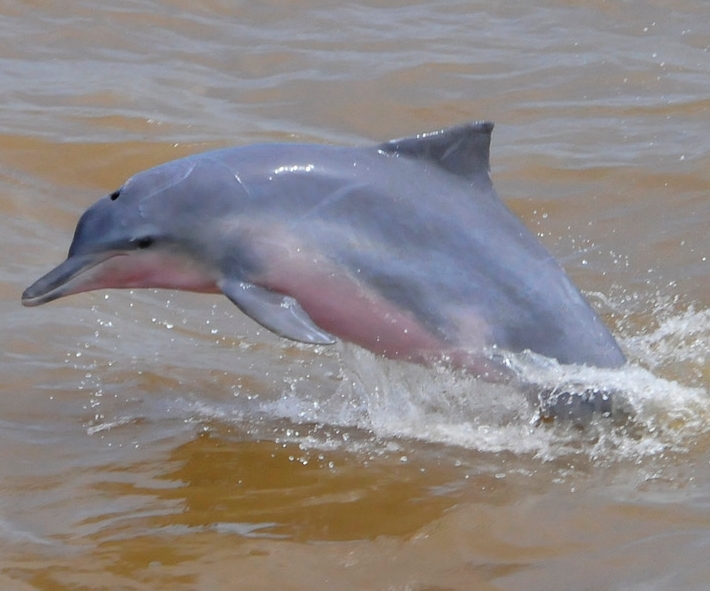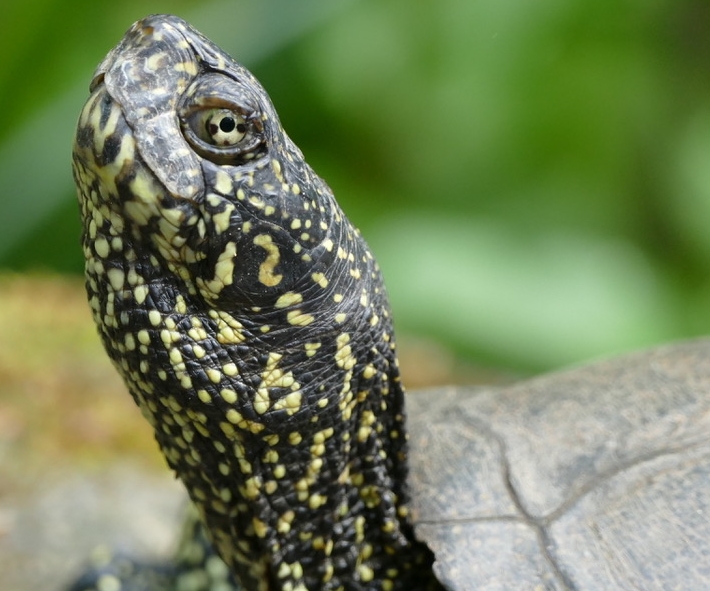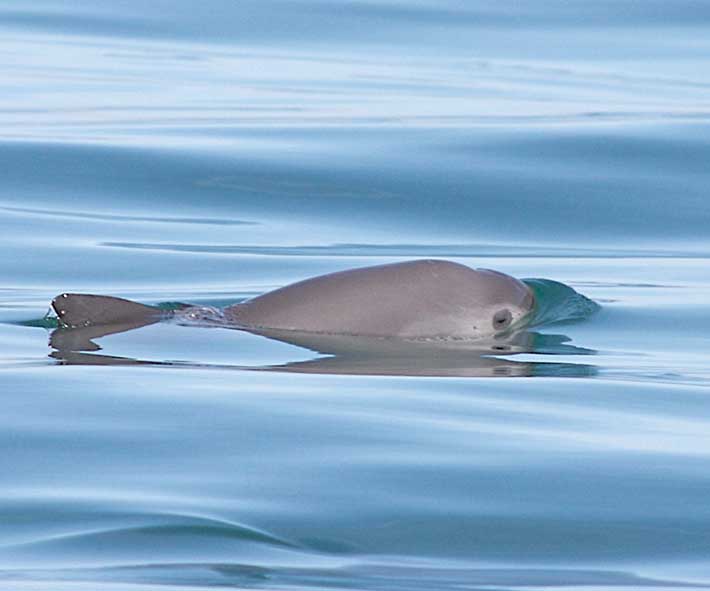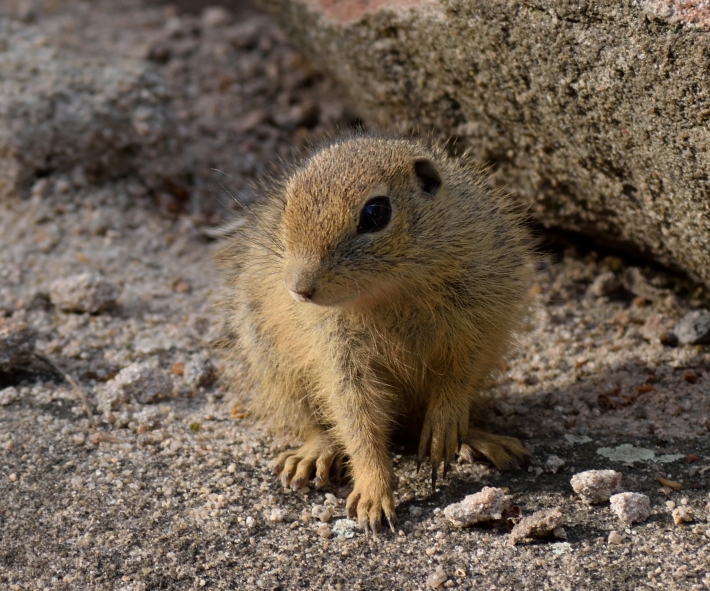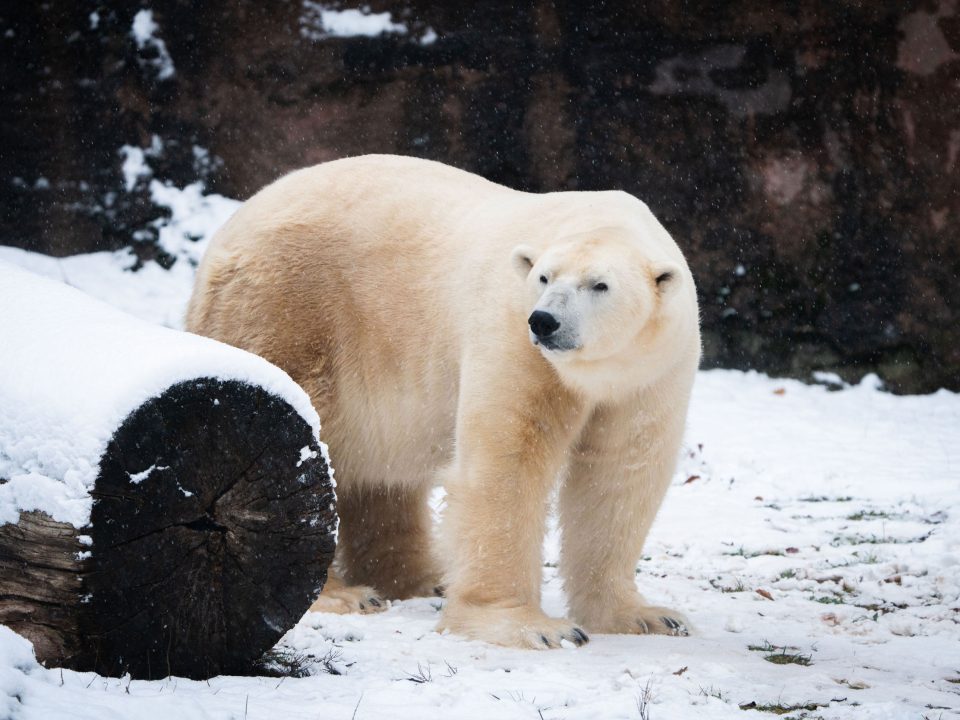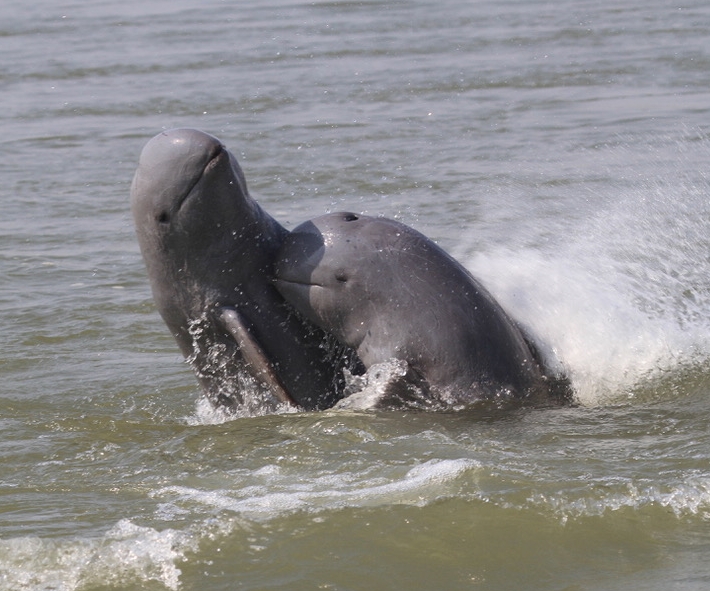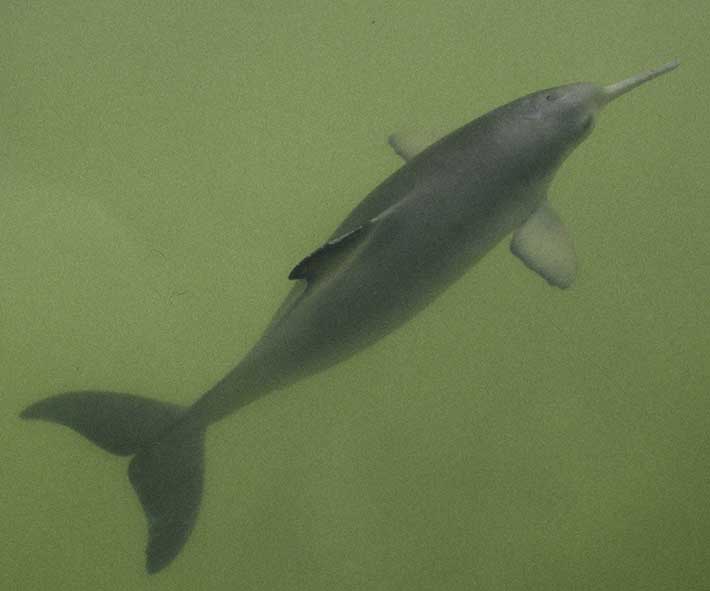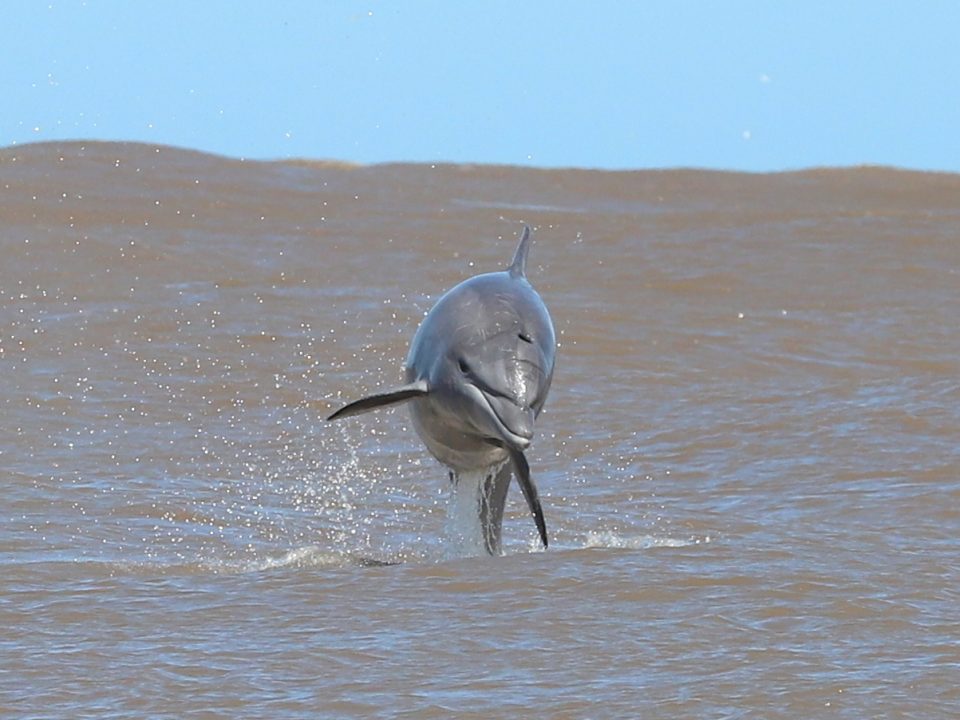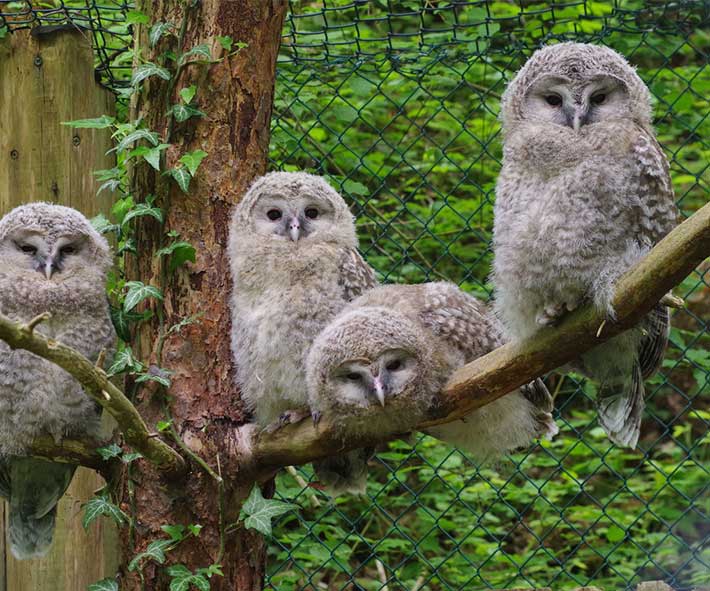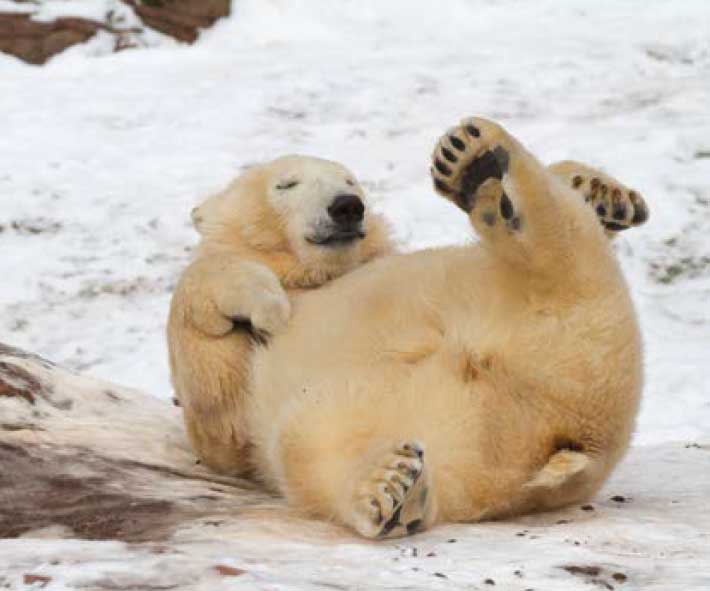
Stress in Polar Bears
21/07/2020
Reintroduction of Bearded Vultures
22/07/2020Sensory Biology in Dolphins

Dear dolphin, can you feel it?
An important prerequisite for designing proper habitats in the zoo, but also in order to better protect animal species in their natural habitat, is knowing how they experience their environment. Smelling, seeing, tasting, hearing, and touch are the most well-known sensations. But what about the perception of electric stimuli? Many animal species generate electric signals, e.g., through breathing or muscle movements. Thus, during foraging, being able to detect electric fields generated by other animals helps is a reliable source of information for predators. This ability is called electroreception and is most-known in sharks and rays and some teleost fishes. So far, among mammal species, this has only been observed in the platypus, two subspecies of echidna and the Guiana dolphin (Sotalia guianensis). All of the animals mentioned have similarly designed electroreceptors with which electric fields are detected. Sharks, rays, and the platypus have ampullary electroreceptors on their bills or on their head. In dolphins, the hairless follicles of the tactile hairs, the so called vibrissal crypts pits, on the upper rostrum have been identified as the sensory units.

Our Contribution
Whether and to what extent bottlenose dolphins (Tursiops truncatus) also have the ability to detect electric fields in water was investigated at Nuremberg Zoo. In a behavioral experiment, four bottlenose dolphins learned to respond to electric fields. To do this, the dolphins first were trained to leave the experimental apparatus in response to an acoustic signal. After ensuring that the dolphins reacted not only to acoustic, but also to visual or mechanical signals, it was tested whether they could also transfer the learned behavior to direct current electric fields. All four dolphins reacted immediately to these new stimuli and left the apparatus within seconds of the stimulus being presented. This experiment thus provided the first evidence that bottlenose dolphins also have an electrosense. In the following, the strength of the electric fields was gradually reduced and a perception threshold for direct and alternating current electric fields was determined with the two female dolphins Donna and Dolly. These results establish passive electroreception as an additional sensory modality in dolphins. The ability to perceive weak electrical signals can primarily help dolphins to locate fish hidden in the sand and successfully snapping at them. Additionally, could explain the orientation of toothed whales to the earth’s magnetic field and why mass strandings frequently occur in locations with disturbances to the geomagnetic field. As soon as a conductive body, such as a swimming dolphin, moves through the earth's magnetic field, an electric current is generated. Dolphins moving at a normal speed of around 10 meters per second could thus generate and perceive a detectable electric current of 2.5 μV/cm. Depending on where and how fast the animals swim, they can recognize differences by using their electrical sense and thus orient themselves on their migrations.

Bottlenose dolphins are kept and bred in the Nuremberg Zoo.
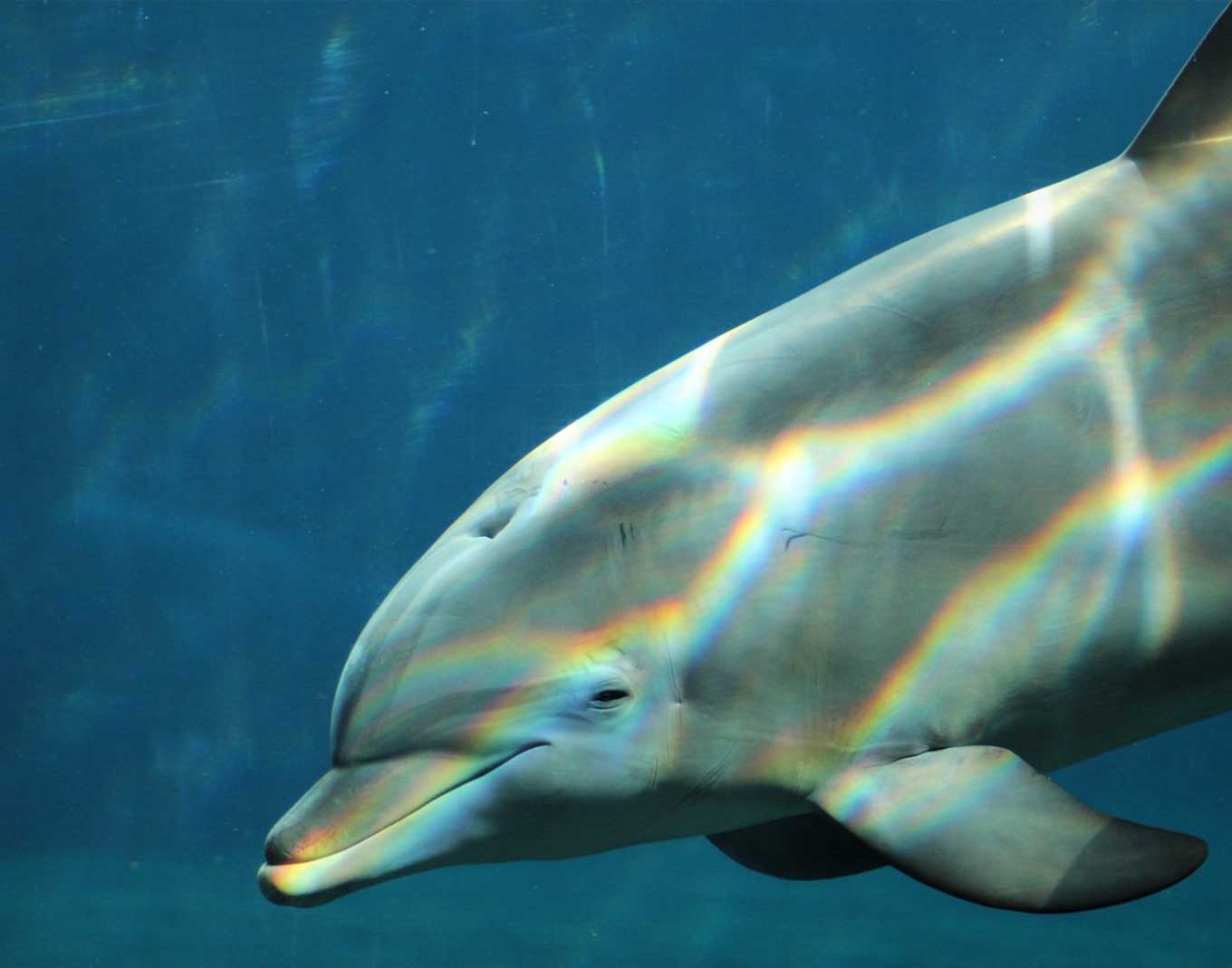
© Zsuzsanna Helgeth

© Blende AchtWolf
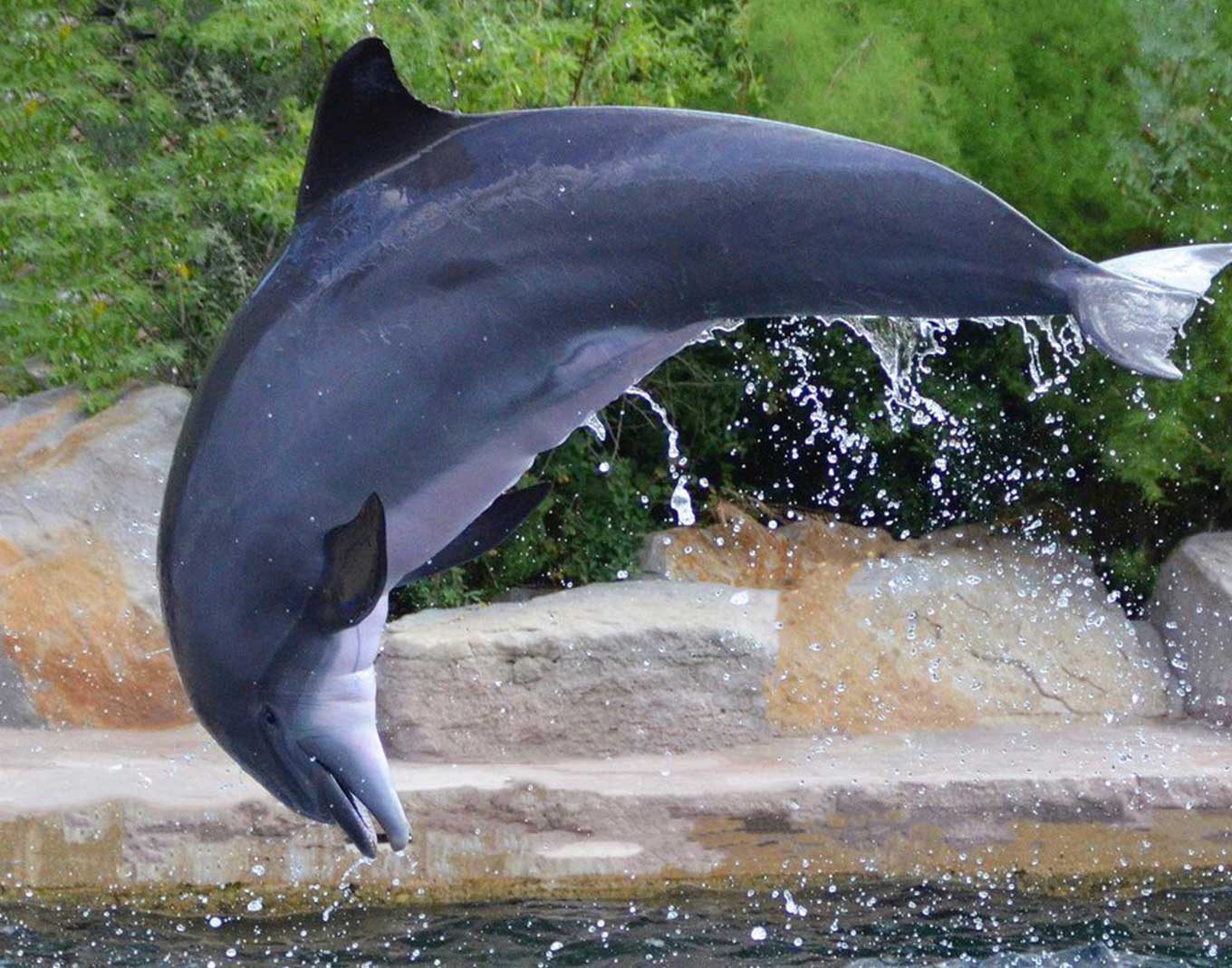
© Alwin Pelzer
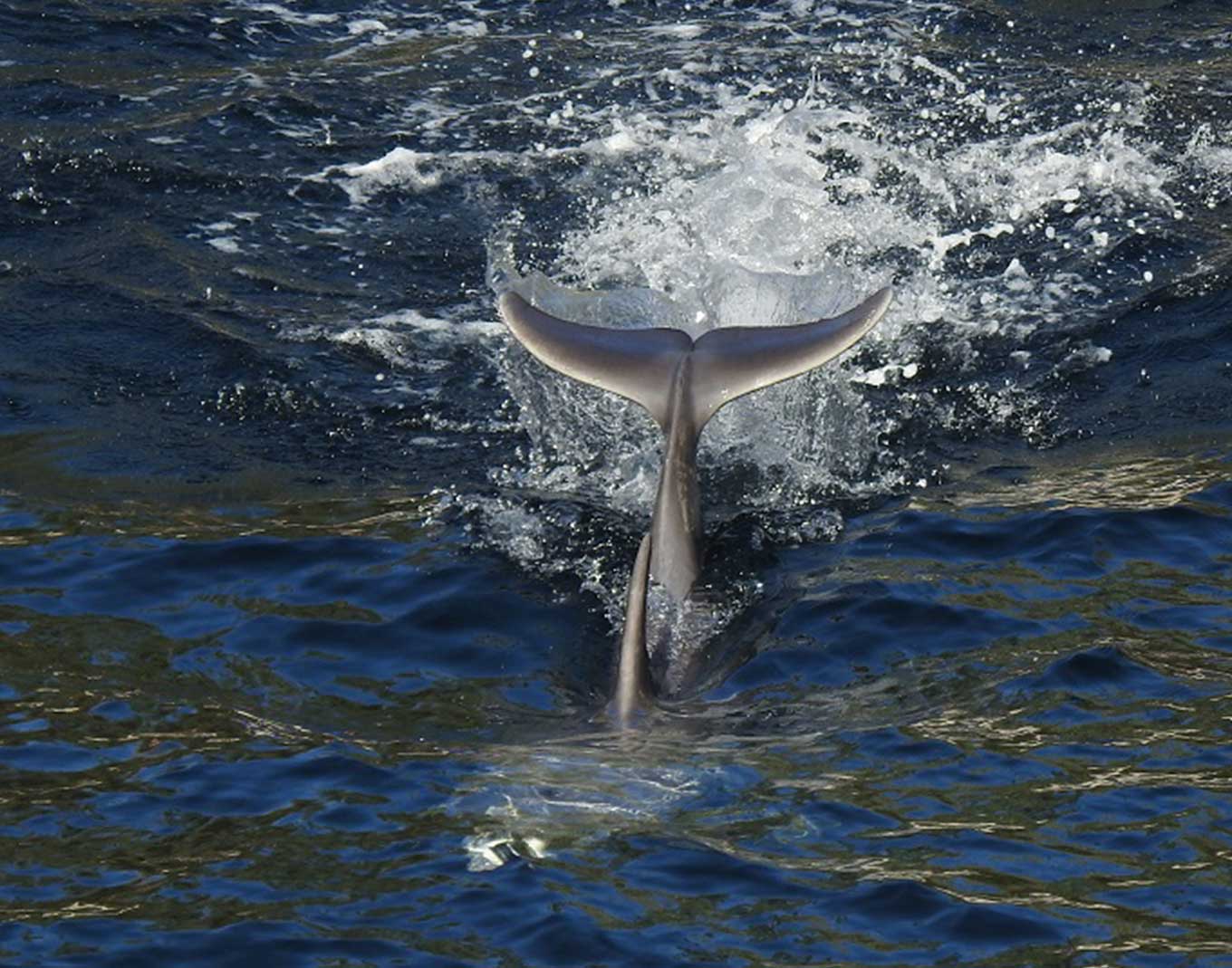
© Christian Langhans
Selected articles
Bottlenose dolphins can feel electric fields: Research news from Nuremberg Zoo
Nuremberg Zoo press release, 01.12.2023 (Text: Dr. Tim Hüttner & Anna Böhm)
Dr. Tim Hüttner, biologist and research associate working for the Association of the Friends of the Nuremberg Zoo, Hüttner investigated the so-called electroreception in bottlenose dolphins (Tursiops truncatus) during his dissertation with a total of four dolphins from Nuremberg Zoo. The bottlenose dolphins' electrical sense could not only help them to track down their prey in the sand, but also to find their way in the sea.
The results of his long-term study, which he conducted in collaboration with Prof. Dr. Guido Dehnhardt, Chair of Sensory and Cognitive Ecology at the University of Rostock, have now been published in the "Journal of Experimental Biology" and have generated worldwide media attention.
It is well-known that bottlenose dolphins possess a keen sense of hearing and good eyesight. The fact that they can also perceive electric fields is new. "With their electric sense, dolphins can sense the electric fields generated by fish, for example. This could help them to track down prey buried in the sand. On the other hand, the perception of the earth's magnetic field could also help them to orientate themselves in the sea," says Hüttner, who is the first author of the study.
Vibrissal crypts as electroreceptors
But how does it work? Dolphins, like almost all mammals, are born with whisker hairs arranged in two rows of hairs along their snout-like rostrums. However, dolphins loose these hairs soon after birth, leaving only hairless follicles, the so-called vibrissal crypts (see Figure 1).
The first indications that these crypts are functional sensory units came from a study carried out by Prof. Dr. Guido Dehnhardt with a Sotalia dolphin (Sotalia guianensis) at Münster Zoo in 2012: In a morphological study, Prof. Dr. Dehnhardt and his colleagues found that the vibrissal crypts closely resemble the sensory organs that enable sharks to detect electrical fields. A behavioral experiment with a Guiana dolphin confirmed this assumption.
Training and research with bottlenose dolphin at Nuremberg Zoo
To investigate whether bottlenose can also sense electric fields, Prof. Dr. Dehnhardt and Dr. Hüttner teamed up with Dr. Lorenzo von Fersen, curator for research and conservation at Nuremberg Zoo, and physicist Lars Miersch from the University of Research. At first, the researchers tested the sensitivity of the two female dolphins, Donna and Dolly, to various electrical fields. To do this, together with Armin Fritz, dolphin keeper and head of the zoo in Nuremberg, they first trained the animals to swim underwater in an apparatus and place their rostrum on a station and wait for a signal (see Figure 1).
Step by step, the animal learned to leave the apparatus as soon as they detected a direct current (DC) electric stimulus, generated by electrodes placed directly above the dolphin’s snout. The team gradually reduced the electric field from 1,500 to 2 microvolts per centimeter (μV/cm) and tracked how reliably the dolphins reacted to weakened electric fields.
Hüttner and his colleagues were very impressed. Donna and Dolly were equally sensitive to the strongest fields and left the apparatus correctly almost every time. Only when the electric fields became weaker, the showed that Donna was slightly more sensitive. While Dolly was able to detect fields up to a strength of 5.5 μV/cm, Donna still perceived signals with an electric field strength of 2.4 μV/cm.
In the final step, Hüttner tested whether the two dolphins can also perceive alternating current (AC) fields with frequencies of 1, 5, and 25 Hz. However, neither of the animals were as sensitive to the AC fields as they were to the (DC) electric fields. Dolly could only pick 1 Hz AC fields at 28.9 μV/cm, while Donna picked up all three of the oscillating fields, sensing the slowest at 11.7 μV/cm.
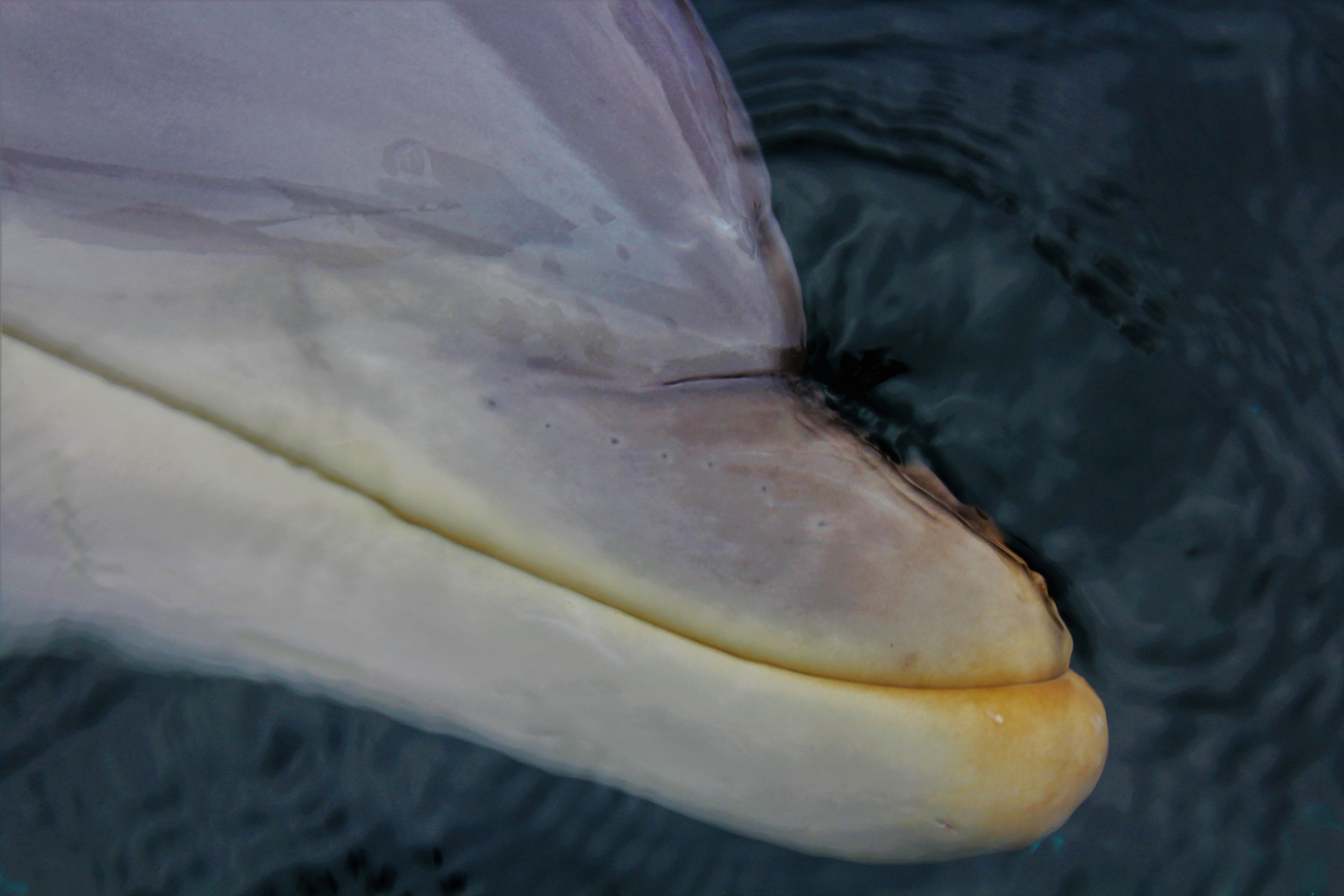
Implications for small- and large scale orientation
So, what does this newly discovered sense mean? “The sensitivity to weak electric fields helps a dolphin search for fish hidden in sand, especially when their other senses are limited, electroreception might enable the dolphins to precisely snap at the fish,” explains Hüttner. Prof. Dehnhardt adds: “In addition, the results with a second dolphin species have encouraged us to discuss the applicability of this sensory ability more broadly and to bring magnetic field orientation into play".
As soon as a conductive body such as a swimming dolphin moves through a the Earth’s magnetic field, electricity is generated that flows around the body - and as Dr. Hüttner and Prof. Dr. Dehnhardt have now discovered, dolphins could detect these electric fields. "Electroreception can therefore explain the orientation of toothed whales to the Earth's magnetic field," says Prof. Dr. Dehnhardt.
The faster the animals swim across the geomagnetic field, the stronger the detectable electric current they generate along their bodies. "Dolphins swimming at a normal speed of 10 meters per second through weak areas of the Earth's magnetic field could generate a detectable electric current of 2.5 μV/cm along their bodies," explains Prof. Dr. Dehnhardt. The Earth's magnetic field is not equally strong everywhere. Thus, if the dolphins use their electrosense, they can navigate the ocean during the migrations.
The importance of zoos as research facilities are invaluable
Hints that whales and dolphins have a magnetic sense have been discussed for a long time. For example, mass strandings of toothed whales often correlate with alterations of the earth's magnetic field. However, an explanation as to how whales and dolphins could perceive the earth's magnetic field has been missing – until now. Thanks to the excellent research opportunities offered by zoological institutions such as Nuremberg Zoo, this has now changed.
Dr. von Fersen, also a co-author of the study, says: "The results of the study show that there are still unanswered questions, even with a species as well researched as the bottlenose dolphin. We can only investigate such specific and complex questions under controlled conditions. Thus, zoos are essential research facilities."
The research results from the Nuremberg Zoo by Dr. Tim Hüttner and his colleagues are discussed in the media worldwide. Here are some examples:
El País (Spain) >> https://elpais.com/ciencia/2023-11-30/los-delfines-mulares-tienen-un-septimo-sentido-sienten-la-electricidad.html
The New York Times (USA) >> https://www.nytimes.com/2023/11/30/science/dolphins-electric-fields-sense.html
FAZ (Germany) >> https://www.faz.net/agenturmeldungen/dpa/delfine-spueren-schwache-elektrische-felder-19352952.html
The Science Times (USA) >> https://www.sciencetimes.com/articles/47401/20231130/bottlenose-dolphins-sense-electric-fields-water-using-long-snouts-study.htm
Scientific Publications
Dehnhardt, G., Miersch, L., Marshall, C. D., Fersen, L. von, & Hüttner, T. (2020). Passive Electroreception in Mammals. In B. Fritzsch (Ed.), The Senses: A Comprehensive Reference (2nd Edition, pp. 385–392). Elsevier. https://doi.org/10.1016/B978-0-12-809324-5.24158-8
Hüttner, T., Fersen, L. von, Miersch, L., Czech, N. U., & Dehnhardt, G. (2022). Behavioral and anatomical evidence for electroreception in the bottlenose dolphin (Tursiops truncatus). The Anatomical Record, 305(3), 592–608. https://doi.org/10.1002/ar.24773
Hüttner, T., Fersen, L. von, Miersch, L., & Dehnhardt, G. (2023). Passive electroreception in bottlenose dolphins (Tursiops truncatus): Implication for micro- and large-scale orientation. The Journal of Experimental Biology, 226(22). https://doi.org/10.1242/jeb.245845
Mynett, N., Mossman, H. L., Hüttner, T., & Grant, R. A. (2022). Diversity of vibrissal follicle anatomy in cetaceans. The Anatomical Record, 305(3), 609–621. https://doi.org/10.1002/ar.24714




